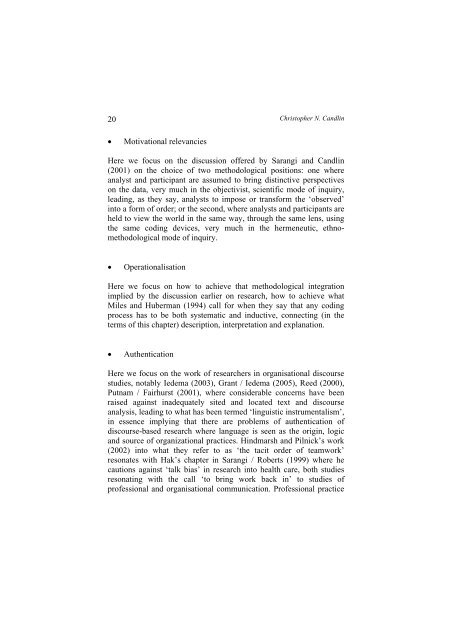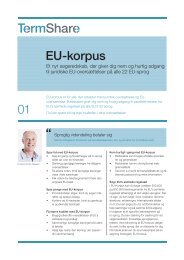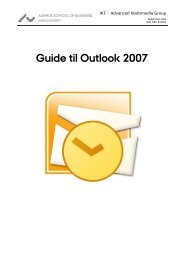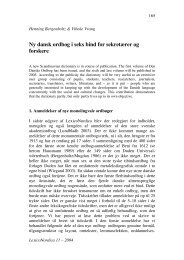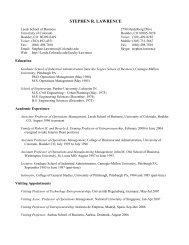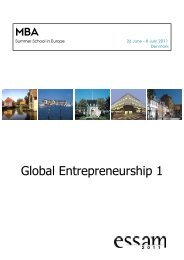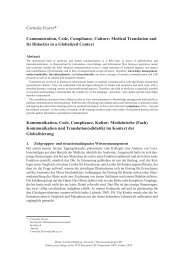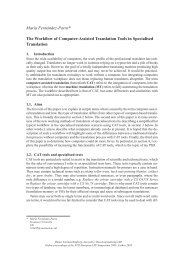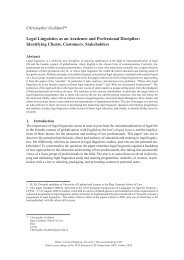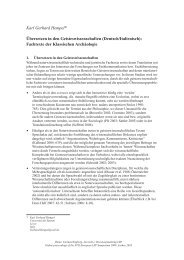Accounting for Interdiscursivity: Challenges to Professional Expertise
Accounting for Interdiscursivity: Challenges to Professional Expertise
Accounting for Interdiscursivity: Challenges to Professional Expertise
You also want an ePaper? Increase the reach of your titles
YUMPU automatically turns print PDFs into web optimized ePapers that Google loves.
20<br />
• Motivational relevancies<br />
Chris<strong>to</strong>pher N. Candlin<br />
Here we focus on the discussion offered by Sarangi and Candlin<br />
(2001) on the choice of two methodological positions: one where<br />
analyst and participant are assumed <strong>to</strong> bring distinctive perspectives<br />
on the data, very much in the objectivist, scientific mode of inquiry,<br />
leading, as they say, analysts <strong>to</strong> impose or trans<strong>for</strong>m the ‘observed’<br />
in<strong>to</strong> a <strong>for</strong>m of order; or the second, where analysts and participants are<br />
held <strong>to</strong> view the world in the same way, through the same lens, using<br />
the same coding devices, very much in the hermeneutic, ethnomethodological<br />
mode of inquiry.<br />
• Operationalisation<br />
Here we focus on how <strong>to</strong> achieve that methodological integration<br />
implied by the discussion earlier on research, how <strong>to</strong> achieve what<br />
Miles and Huberman (1994) call <strong>for</strong> when they say that any coding<br />
process has <strong>to</strong> be both systematic and inductive, connecting (in the<br />
terms of this chapter) description, interpretation and explanation.<br />
• Authentication<br />
Here we focus on the work of researchers in organisational discourse<br />
studies, notably Iedema (2003), Grant / Iedema (2005), Reed (2000),<br />
Putnam / Fairhurst (2001), where considerable concerns have been<br />
raised against inadequately sited and located text and discourse<br />
analysis, leading <strong>to</strong> what has been termed ‘linguistic instrumentalism’,<br />
in essence implying that there are problems of authentication of<br />
discourse-based research where language is seen as the origin, logic<br />
and source of organizational practices. Hindmarsh and Pilnick’s work<br />
(2002) in<strong>to</strong> what they refer <strong>to</strong> as ‘the tacit order of teamwork’<br />
resonates with Hak’s chapter in Sarangi / Roberts (1999) where he<br />
cautions against ‘talk bias’ in research in<strong>to</strong> health care, both studies<br />
resonating with the call ‘<strong>to</strong> bring work back in’ <strong>to</strong> studies of<br />
professional and organisational communication. <strong>Professional</strong> practice


